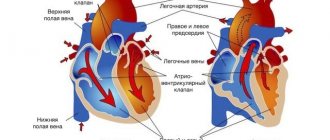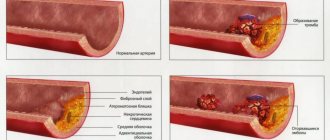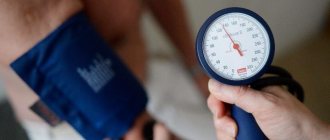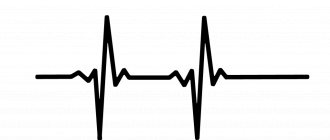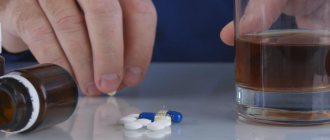Contraindications
The drug has relative and absolute contraindications. You should refuse to take it if you have allergic reactions to the constituent components, as well as in conditions where bleeding may begin.
Relative contraindications include:
- bronchial asthma;
- problems with kidney function;
- diabetes;
- age up to 12 years;
- chronic gastrointestinal diseases;
- period of bearing a child;
- breastfeeding period.
If there are relative contraindications, then taking the drug is possible only after examination by a doctor and his approval.
Effect of the drug on the body
Given the controversial effectiveness of aspirin, it is important to remember that the determining role is played by the person’s condition, the characteristics of his body and the presence of any internal injuries and diseases. The illusory effectiveness of this medicine for such people can result in irreversible processes that can lead to death. The main positive aspects when taking medications of different pharmacological groups:
- improving blood circulation and providing oxygen to cellular structures;
- aspirin relieves any manifestations of pain and inflammatory processes;
- thins the blood and stimulates free circulation;
- reduces blood pressure;
- Acetylsalicylic acid does not cure, but alleviates the human condition.
Objective use of the drug is achieved thanks to the correct sequence and dosage, which was established by the attending physician. Many people take the pill the day before the upcoming feast. This allows you to significantly reduce the impact of alcohol on the body, prevent the appearance of hangover symptoms and provide yourself with a “morning without consequences.”
Adverse reactions and overdose
While taking the medicine, undesirable reactions may occur:
- increased susceptibility to the constituent components, manifested by skin rash;
- pain in the abdomen.
With regular and frequent use, in rare cases, bleeding from the stomach may begin, which is manifested by the following symptoms:
- anemia;
- malaise;
- unbearable pain in the stomach.
If such signs appear, you should immediately stop taking it and inform a specialist.
An overdose of the drug is manifested by the following symptoms: nausea, vomiting, hearing problems, confused thinking.
Severe headaches: what to do
99% of the population experiences a headache at some point in their life. If this pain is periodic and is not accompanied by loss of consciousness and severe neurological disorders, then people adapt to it. And in vain. With proper discipline of the patient, in more than half of the cases, headache treatment is quite successful. Unfortunately, not everyone goes to the doctor on time.
Doctors name many causes of headaches. In the latest classification there are over two hundred of them. The main ones are vertebrogenic (the name is very symbolic - this category includes all types of headaches that arise due to obstruction of blood flow in the back of the head), pain due to migraines, with changes in blood pressure, after traumatic brain injuries and with infectious diseases ( even, for example, with a chronic runny nose).
Psychogenic headaches also occur. This includes tension headaches (mental or physical), as well as pain associated with anxiety and depression. Most often it is an aching, or pressing, or throbbing pain, concentrated in the occipital, temporal or frontal areas, or “spread” throughout the head. Patients agree on one thing: it can be tolerated for quite a long time, more than an hour for sure. And there is no motivation to immediately go to the doctor. This is how they live - for years, decades... A handful of pills, good sleep, timely vacation - and everything returned to normal by itself.
It will hurt and go away
If not only your family and colleagues know about your headache, but even your followers on social networks, and based on its intensity, you can, without measuring your blood pressure, figure out how many and what antihypertensive drugs you need to take this time, or you know exactly what kind tablet and in what dosage it helps, and carry the medicine with you, if your attending doctor raises his eyes to the ceiling and, sighing heavily, coos something confidentially about how “you need to worry and be less nervous,” then such a headache is most likely , will give you the opportunity to procrastinate further. And when your head hurts, you don’t really want to make an appointment, go to the doctor, explain something to someone... In any case, soon the “head will pass” and life will shine with all its colors again.
During a headache attack, people behave quite typically. A person seeks privacy; smells, bright lights and sounds are irritating. Some try to lie down and not move, some, on the contrary, walk around the room without stopping.
Remember Alla Pugacheva’s video about noisy neighbors? There is a wide bandage on the head, the nerves are stretched to the limit. Here is a portrait of a typical sufferer. The world is reduced to the size of a darkened and quiet bedroom. The condition when the head still does not hurt, on the contrary, is accompanied by an attack of violent activity and intense body movements. Everything is familiar.
Pain at its maximum
But one day the pain overshadows everything. It becomes so strong that you immediately understand: this is a “different” pain, unusual, unlike anything else. “Wild” is what her patients call her. Burning, boring, tearing or squeezing the head, piercing, sharp, intolerable, covering the entire head or part of it. This may be accompanied by loss of consciousness or confusion, convulsions, nausea and vomiting, immobility of one limb or half of the body, impaired speech or vision. Anything! After this, you are unlikely to experience any joy in life...
Medical advice will come later. And now - medical observations. In 99% of cases, with such a severe pain attack, people first take “some” pill. From those that are in the medicine cabinet, they were found at a neighbor’s place, they were shown on TV (well, where at first “everything hurts”, and then there is gulpfuls of happiness and the world is beautiful and amazing).
In principle, this is the right tactic. The only problem that most doctors point out is the dosage. With a strong, almost unbearable headache, eager to “drown out” it immediately, people take an absolutely insane amount of painkillers that can “poison” the body for a long time. And then people wait. When it “passes,” when “the pill takes effect,” when morning comes. And when it gets really bad...
If the attack took you by surprise
So, a severe, first-time headache. You are conscious, externally there is no damage. What could it be? Whatever! After all, the brain itself cannot hurt - it has no pain receptors. Pain occurs due to tension or irritation of many pain-sensitive areas located in the head or neck: the skull (periosteum), muscles, nerves, arteries and veins, subcutaneous tissue, eyes, sinuses and mucous membranes. That's why:
Tip #1.
Do not try to diagnose yourself! If you have a severe, sudden, first-time headache, call a doctor! Sit down and call someone adequate and not fussy to help you (in case you lose consciousness). Do not take more than double the dose of painkillers and remember that the medicine takes time to work.
Tip #2.
Before dialing an ambulance, take your temperature. Because a headache can accompany the onset of a viral or infectious disease. In any case, you will give the doctor the opportunity to begin work on making a diagnosis two minutes earlier. Remember, sometimes minutes can save a life.
Tip #3.
Try touching your chin to your chest. If you can’t because the pain in the occipital region is intensifying, feel free to dictate this terrible symptom to the call center operator. Because meningitis is not a toy, but a very dangerous complication of many seemingly harmless acute respiratory viral infections.
Tip #4.
If you have a tonometer, measure your blood pressure. And preferably on both hands. Because a good half of all new cases of hypertensive crises are accompanied by very severe cephalgia. And a hypertensive crisis is already serious. It can easily lead to a heart attack or stroke.
Tip #5.
Remember in detail what happened the day before. There is a special type of headache - toxic. It occurs when poisoned by various chemicals or as a side effect from taking medications. This headache is often caused by drugs that lower blood pressure, nitrates, psychotropic drugs and many other substances. By the way, many teenagers’ lives were saved by the meticulousness of their parents, who inquired in detail from their sick child about the circumstances of the party the day before.
Tip #6.
Look and feel. Even a healthy person can experience a sharp headache after heat or sunstroke, being in a stuffy room, or from carbon monoxide poisoning or car exhaust. By the way, don’t forget about such a thing as amnesia. A person hit on the head sometimes completely forgets the circumstances of the injury. Look at yourself in the mirror, palpate the skin under your hair and neck for bruises, wounds or scratches.
Tip #7.
Don't waste time. The most unpleasant case is the presence of a space-occupying formation in the brain. It could be a tumor, an abscess, or even bleeding. The diagnosis can only be made with the help of neuroimaging, so if you have a headache for a long time, do not delay contacting a neurologist. Remember: headaches have no equal in their diversity!
Tip #8.
If the headache goes away as suddenly as it appeared, no. In some of its types, for example, with intracerebral bleeding, there may be a “bright” period before the most serious complications appear. Wait for the doctor. Don’t rush to write your will and finish the “most important things.” Try to sit comfortably and relax.
Tip #9.
When visiting a doctor, keep a piece of paper ready with a note of exactly what medications you took for headaches. And medical gratitude will have no boundaries!
Attention! If the headache is accompanied by loss of consciousness or confusion, convulsions, nausea and vomiting, immobility of one limb or half of the body, impaired speech or vision, then without any options, call a doctor immediately
. And do not engage in self-medication and mutual assistance.
For those around you, there is only one piece of advice: do not let the patient die from your “care.” Do not try to give water to a person lying unconscious, do not put foreign objects in the mouth during a convulsive attack, do not “flush the stomach” if there is profuse vomiting that does not bring relief, do not shake a dangling arm or leg! Loosen constricting clothing, allow fresh air to flow, and carefully turn your head to the side.
The sooner the patient gets to the hospital, the greater his chances of remaining alive and unharmed. After all, pain can be a manifestation of such serious diseases as stroke, meningitis or encephalitis. Remember, only a doctor can make a diagnosis. And the advice “do no harm” applies not only to doctors...
Valentina Saratovskaya
Photo thinkstockphotos.com
Rules for taking medications
The symptoms of a hangover hinder a person’s functionality and put him in a state of weakness and malaise. The benefit of the drug will be optimal if it is taken correctly in accordance with the parameters established by the attending physician or with the specified recommendations in the instructions.
- It is unacceptable to swallow the tablet without liquid.
- Pills or effervescent powder must be diluted with a certain amount of water.
- It is strictly forbidden to take the tablet with alcohol, beer, tea or juice.
- You should not take the pill right before going to bed.
- It is good to take the powder in the morning, as this will determine the condition of the body for the whole day without causing harm.
The effect of the drug on the body has a different period. According to the indicated properties of aspirin, it begins to act within 10-20 minutes. If the effect does not occur, do not quickly swallow an additional tablet to improve the result. The recommended waiting time for the drug to act is indicated in the permissible probability and the approximate relationship between the properties of the drug and the body. Therefore, these dates are not reliable. It all depends on the person, the amount of alcohol and many other factors that slow down the body’s recovery process.
How much aspirin to take for a hangover?
The drug must be taken according to the instructions included with any pharmaceutical product or as prescribed by a doctor. Experts recommend taking 0.3-0.5 g the day before the upcoming holiday. The medication should be taken again after 10-12 hours in the optimal amount of 0.5 g. Doctors recommend combining the medication with a diet that minimizes the content of white products. This will help reduce the load on the liver and relieve the feeling of heaviness. Before taking the drug, you must familiarize yourself with all possible contraindications indicated in the instructions.




